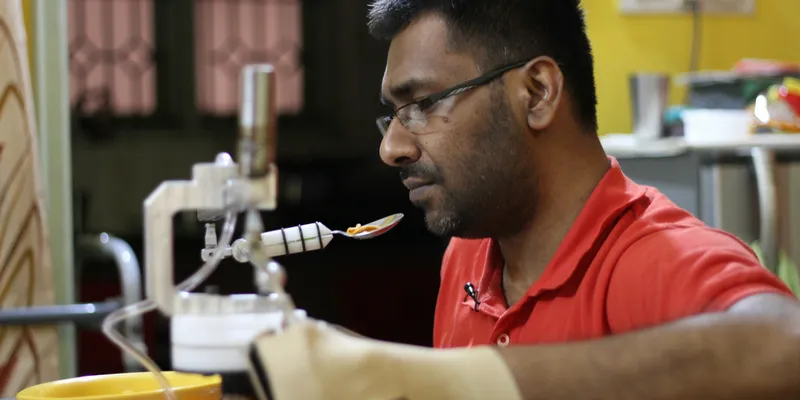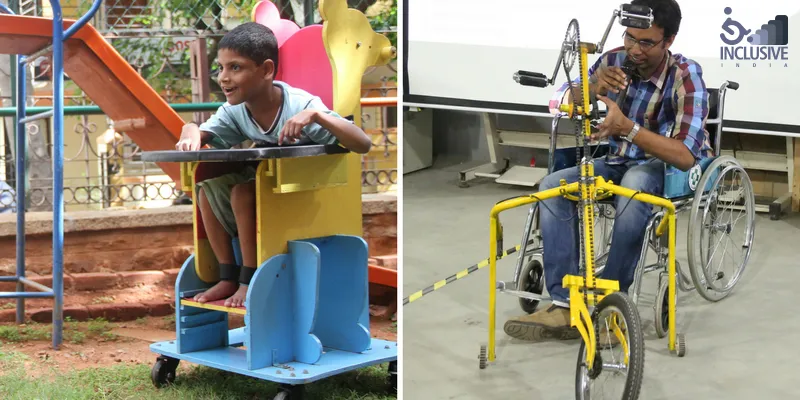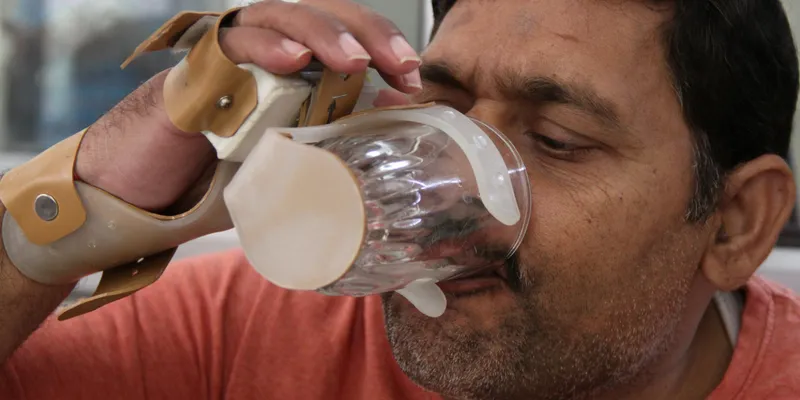Tech for inclusion: How Enable Makeathon is making it easy for the differently-abled
The International Committee of the Red Cross is organising Enable Makeathon 2.0 in Bengaluru early next year to brainstorm and incubate solutions that will help the physically disadvantaged to participate in regular life again.

“We have been distributing orthotics and prosthetics to people across 40 countries,” says Tarun Sarwal, Innovation Advisor at the International Committee of the Red Cross (ICRC), over a telephone chat. “We want people to take part in life.” The solution is to work with those straight out of an environment of physical disability and living in underdeveloped countries without means of inclusion.
“We are trying to source ideas from people, and we thought, Why not Bengaluru? It’s an exciting city.”
“Enable Makeathon 2.0 is a programme initiated by the ICRC and its partners. The purpose of the programme is to develop prototypes and affordable solutions for challenges faced by persons with disabilities, particularly those living in rural areas.
Teams of engineers, scientists, designers, innovators, persons with disabilities, humanitarians, manufacturers, investors, and entrepreneurs compete against each other for grants that will allow them to further develop and market their innovations. This year, the purpose of the programme is to crowdsource prototype solutions and products to address 12 challenges related to accessibility and employability, which are faced by persons who are hearing impaired, sight impaired, or living with locomotor disabilities,” says the ICRC spokespersons.
The ICRC employs more than 14,500 people in more than 80 countries worldwide. It provides physical rehabilitation, such as physiotherapy, assistive devices and their repair and maintenance. The co-organiser of the Enable Makeathon, the Global Disability Innovation Hub (GDI Hub), was born of the London Paralympic Games of 2012. It is a centre for research and excellence in the field of inclusive innovation and creative thinking.
In keeping with the vision of both these organisations, Enable Makeathon 2.0 brings together creativity, artistry, and inclusion – the motto is to impart the gift of regular life to those with disabilities.
Ideation at play

The focus areas for 2018 are accessibility, employability, locomotive empowerment, and hearing and sight enablers. The vision is to heal the gaps between faculties people need to lead normal, regular lives and what some people actually have.
Ninety-four ideas poured in from across the world, 26 teams were invited for interviews, 15 have been selected and will be provided with design, fabrication, electronic development and other support. With this, 10 teams in India and five in the United Kingdom will perfect their ideas and creations between December 5 and 20, 2017.
Approximately 10 ideas will be shortlisted from these and provided support to produce six samples each, along with user testing and market testing services for the next six weeks. These products will be incubated at IIM Bangalore.
On the day of the final competition, February 5, 2018, three winners will be awarded an incubator grant and will be supported by Artilab for a one-year incubator programme to further develop their solutions. Online votes are welcome till November 7 to help the panel of judges select the finalists.
Ideas for people
Enable Makeathon 1.0 was held in Bengaluru in 2015, and saw participation from 186 teams. Innovations included an IME device with a prosthetic, which can monitor whether the prosthetic has been used; an eating device with a spoon and a fork which can be used by feet; and a slip-on device for the hand to ease motor and hand movements.

The 2017-2018 chapter of Makeathon sees entries like Encare App by Enable India, an app that provides access to caregiver information, location and contact information; the Reader Project by Workbench Projects that includes a wooden phone stand that will hold a smartphone over a book, and a software that will scan the book and turn it into an audio file; Mitran 1.0 by team Mitran to, which is a walking cane with gas struts to help the elderly walk up stairs with ease; an electrically powered three-wheeler that can be driven directly from the wheelchair, among many others.
ICRC is funded centrally by different countries. A part of these funds will be dedicated to buying these products from different teams and distributing them to the physically impaired all over the world.







